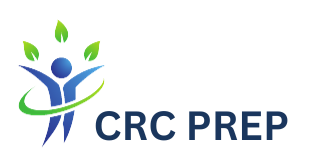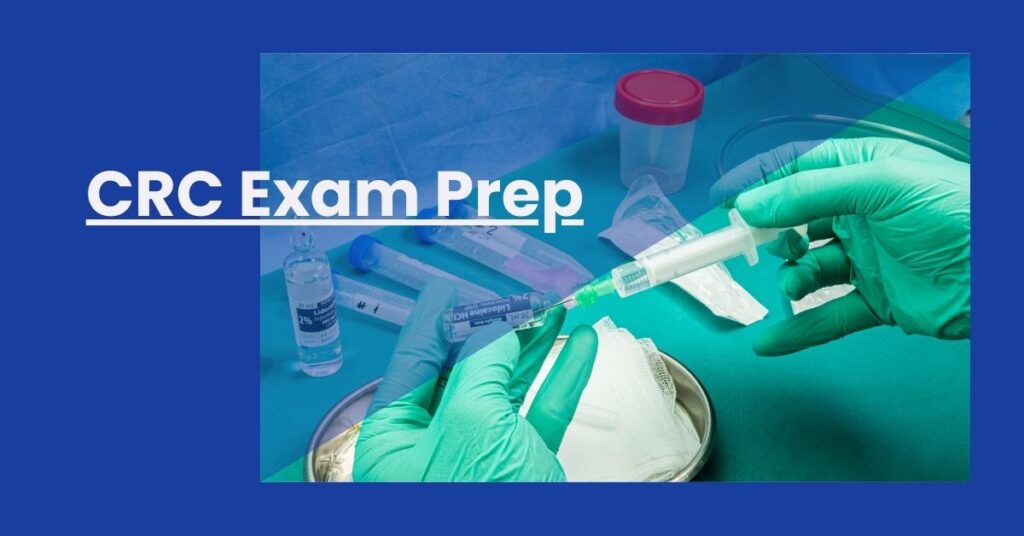CRC exam prep is your gateway to excelling as a rehabilitation counselor. Here’s how to master it:
- Tailored Study Plans: Customized study schedules to optimize your preparation time.
- Practice Makes Perfect: Utilize practice tests for better exam familiarity.
- Expert Resources: Access to authoritative study materials and guides.
Ace your CRC exam prep with confidence.
- Understanding the CRC Exam
- Eligibility Requirements for the CRC Exam
- Registration Process for the CRC Exam
- Breakdown of the CRC Exam Content Areas
- Study Strategies for the CRC Exam
- Practice Tests and Their Benefits
- Time Management Tips During Exam Prep
- Handling Test Anxiety and Stress
- On the Day of the Exam: What to Expect
- After the Exam: Understanding the Scoring and Results
- Resources and Support Systems for Candidates
- Frequently Asked Questions (FAQs) About the CRC Exam
- Conclusion: Your Path to Becoming a Certified Rehabilitation Counselor
Understanding the CRC Exam
When considering your career as a rehabilitation counselor, the Certified Rehabilitation Counselor (CRC) exam is a pivotal milestone. Not only does it validate your expertise in this specialized field, but it also reflects your commitment to delivering top-tier services to individuals with disabilities. This comprehensive exam covers twelve knowledge domains ranging from ethical and professional standards to the delivery of counseling services. Designed to test a blend of your academic knowledge and practical skills, you’ll find the CRC exam challenges your understanding of core principles in ways that are directly applicable to real-world scenarios.
The Weight of Ethical Standards
In the realm of rehabilitation counseling, upholding the highest ethical standards cannot be overstated. As part of your crc exam prep, anticipate encountering scenarios that test your ability to navigate ethically complex situations with integrity and professionalism. Familiarize yourself with the Code of Professional Ethics for Rehabilitation Counselors to ensure your readiness to make sound ethical decisions.
Core Content Counters
A deep dive into various counseling theories and effective communication techniques will be on your exam itinerary. Theoretical knowledge must be woven with practical strategies to demonstrate an integrated understanding. Remember, it’s not just about what you know; it’s about how you apply that knowledge in various counseling settings.
Maintaining a laser focus on the breadth and depth of subjects in this exam will position you for success. Preparing for the CRC exam is your entry point into a career where positive impact and expert knowledge intersect.
Eligibility Requirements for the CRC Exam
To embark on your journey, you must first meet the eligibility requirements. Think of this as the foundation of your professional endeavor—without the proper academic and experiential building blocks, your path may be delayed.
- Educational Prerequisites: A master’s degree in rehabilitation counseling or a closely related field is the first checkpoint.
- Professional Experience: Your hands-on experience in the field, under the guidance of an experienced mentor, is your second gateway to eligibility. Review the specifics at CRC Certification Eligibility to pinpoint where you stand.
Aligning Your Credentials
Align your academic and professional history with the CRC’s standards. Don’t leave anything to chance; document every bit of your coursework and experience carefully, as it will pave a smoother way toward qualification.
Registration Process for the CRC Exam
When you’re ready to register for the CRC exam, timing and attention to detail are critical. Here’s a simplification to get you through the process without any hiccups:
- Application Submission: Send in your completed application well ahead of the deadline.
- Required Documentation: Be meticulous about the documents you attach. Incomplete applications are a common snag for many candidates.
- Fee Settlement: Your registration isn’t complete without payment, so ensure your fees are paid in full.
Expect a confirmation email within a month of your application. This is your cue to shift gears from becoming eligible to becoming prepared. Ace the nitty-gritty admin part by visiting CRC Exam Registration.
Breakdown of the CRC Exam Content Areas
Let’s dissect the CRC exam: it’s imperative that you approach each content area with the attention it deserves. From the ethics of counseling to understanding the life span of individuals with disabilities, the topics are diverse and each carries its weight.
Key Domain Highlights
- Employment and Career Development: Understand principles that drive successful vocational outcomes for clients.
- Group and Family Counseling: Familiarity with dynamics in both spheres deepens your understanding of individual challenges.
- Assessment and Research: The tools and methods here are the backbone of personalized client strategies.
Submerse yourself in each of these domains to assemble a toolbox of knowledge that’s both deep and broad. Diversify your study material as well so your prep doesn’t miss any blind spots.
Study Strategies for the CRC Exam
Developing a robust study strategy is non-negotiable for CRC exam prep. Think of your preparation as a tailored suit—you want the perfect fit for your learning style and life’s demands.
- Structured Schedule: Carve out regular study times in your calendar. It’s not the hours that count, but the consistency.
- Holistic Materials: Utilize a mix of textbooks, online resources, and peer discussions. The CRC Exam Preparation Planner is an excellent starting point to balance your study approach.
- Focus On Weaknesses: Use the feedback from practice tests to hone in on areas where you’re less confident.
The Role of Repetition and Reinforcement
Repetition is an ally in knowledge retention. Regularly revisit tricky concepts to solidify your grasp over challenging material. By reinforcing your learning through different mediums and repetitive study, you’ll engrain the information deeper within your memory bank.
Practice Tests and Their Benefits
Moving on to a cornerstone of your CRC exam prep—practice tests. These valuable tools simulate the pressure and format of the actual exam, giving you an insider’s perspective on what to expect.
- Familiarity with the Format: Mimic the exam environment to acclimate yourself to the digital answering process and the type of questions posed.
- Time Management: Develop strategies for pacing yourself through the sea of questions within the allotted time.
- Identifying Knowledge Gaps: Understand where your strengths lie and what areas require your focused attention.
By regularly taking practice exams that mirror the actual CRC test, you’re not just studying; you’re psychologically preparing your brain for the rigors of test day. This investment in time in your study plan can be the strategic edge you need for exam-day success.
Time Management Tips During Exam Prep
Effective time management is an essential skill for achieving exam success. It’s about maximizing your productivity without sacrificing your well-being.
Creating a Balanced Study Plan
Start by breaking down the crc exam content areas into manageable chunks. Then:
- Allocate Specific Study Times: Schedule your study sessions during times when you’re most alert and focused. For many, this may be early morning or late evening.
- Set Realistic Goals: Each study session should have a clear objective. For instance, mastering counseling theories or understanding the nuances of the Americans with Disabilities Act.
Avoiding Burnout
Remember, marathon study sessions can lead to burnout. Instead, opt for:
- Regular Short Breaks: Brief pauses during study sessions can help rejuvenate your mind and improve retention.
- Mixing Study Methods: Different types of study not only keep your brain engaged but also cater to all aspects of learning – from reading and writing to listening and speaking.
Handling Test Anxiety and Stress
The CRC exam can evoke significant stress and anxiety, even for the most prepared candidates. But having the right strategies can make all the difference.
Stress-Reduction Techniques
Leading up to the exam, incorporate:
- Relaxation Exercises: Mindfulness or guided imagery exercises can instill a sense of calm.
- Physical Activity: Exercise releases endorphins, which act as natural stress relievers.
The Power of Preparedness
Preparation doesn’t just mean studying the material; it’s also about preparing mentally and emotionally. Read up on how rehabilitation counselors manage stress and apply these principles to your own prep routine.
On the Day of the Exam: What to Expect
The CRC exam day will arrive faster than you expect, and knowing what to anticipate can ease your nerves.
Test Day Blueprint
If you’re wondering what to expect, consider:
- Arrival Protocol: Plan to arrive early to account for any unforeseen delays.
- Needed Identification: Typically, you’ll need a government-issued ID and your exam confirmation notice.
- The Testing Environment: Familiarize yourself with the testing center rules and setup. This can include understanding the check-in procedure and what items you’re allowed to bring into the testing room.
Exam-Taking Strategies
As you sit for the exam:
- Pace Yourself: Keep an eye on the clock, but don’t rush. Quality answers are better than quick ones.
- Read Carefully: Ensure you understand what each question is asking before you answer.
- Stay Hydrated: Bring a bottle of water if allowed, hydration aids in maintaining focus.
After the Exam: Understanding the Scoring and Results
After submitting your final answer, a mix of relief and anticipation sets in. How the CRC exam is scored and understanding your results are crucial.
Making Sense of Scores
The CRC employs a conjunctive scoring model, meaning you’ll receive preliminary scores on-site. Take note of:
- Counseling Proficiency: You’re evaluated on both counseling and rehabilitation/disability sections.
- Understanding Scale Scores: The score report may not be the final outcome, but it provides valuable insight into your performance.
Resources and Support Systems for Candidates
A wealth of resources are at your disposal to ensure you’re not only ready for the CRC exam but also supported throughout the process.
Building Your Support Network
Leverage:
- Study Groups: Connect with peers who are also preparing for the exam.
- Mentorship: Seek out professionals who have successfully navigated the CRC exam.
Utilizing Official Materials
Don’t overlook:
- CRCC Resources: Updated guides and practice questions that reflect the current exam format.
Frequently Asked Questions (FAQs) About the CRC Exam
As a candidate, you’re bound to have questions about the exam. Here are answers to some common queries:
- Is the CRC exam difficult? Difficulty is relative, but adequate preparation can significantly ease the challenge.
- How long does it take to get official results? While preliminary scores are provided right away, official results can take several weeks.
Remember, every successful CRC has been where you are now—daunted yet determined. Find solace in knowing there’s a path laid out by those who’ve succeeded.
Conclusion: Your Path to Becoming a Certified Rehabilitation Counselor
Approaching the CRC exam with well-informed strategies, the right resources, and a positive mindset is key to your success. Your journey to becoming a Certified Rehabilitation Counselor is as unique as the clients you will serve. Invest in your crc exam prep with the confidence that it’s not just an exam; it’s a stepping stone to a rewarding career dedicated to empowerment and change.
Ace the CRC Exam Prep with our tailored strategies, insightful tips and comprehensive study guides to ensure your success.

